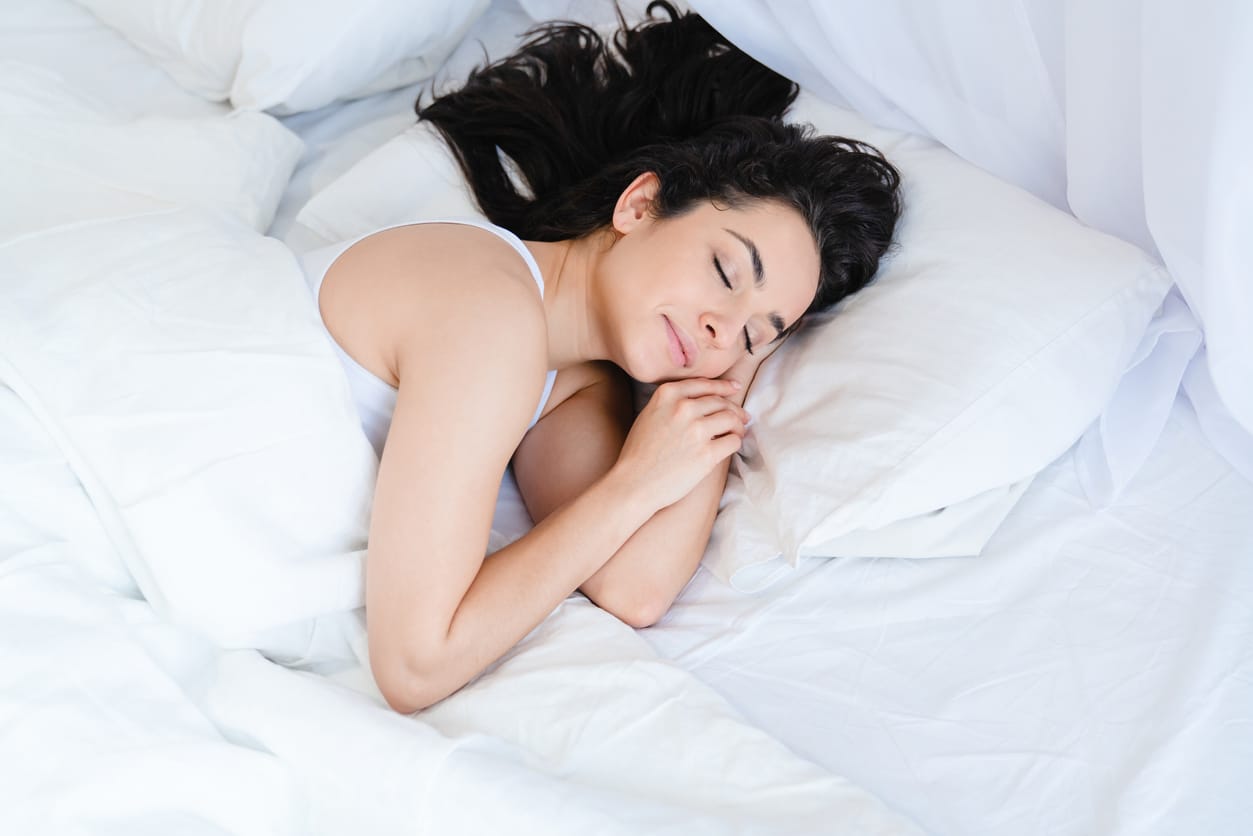
Improve Sleep Quality with the Help of Cameron’s Respiratory Therapy & Sleep Center
Updated July 2024
With busy schedules, the importance of sleep is often overlooked. Here at Cameron, our respiratory and sleep technologists help you prioritize the quality and duration of your sleep. From your mood and mental health to overall well-being, a good night’s rest has an impact on many aspects of life.
Cindy Reese, Cameron’s Respiratory and Sleep Director, says a good night’s sleep should leave you feeling refreshed, alert, and ready to begin the day. A person can tell if they have healthy sleep patterns if it’s easy to fall asleep and stay asleep. This also means it shouldn’t be hard to wake up in the morning.
Common Sleep Disorders
Individuals who don’t get enough sleep throughout the night experience sleep deprivation. Stress and other circumstances you experience in day-to-day life can interrupt sleep and contribute to sleep deprivation. Hallmark signs of sleep deprivation include slowed thinking, a reduced attention span, and worsened memory. Other signs include poor decision-making, mood changes, lack of energy, and general feelings of stress, anxiety, and irritability.
Insomnia, which is experienced when it’s hard to get to sleep or stay asleep throughout the night, is a common sleep disorder that can lead to sleep deprivation. Obstructive sleep apnea is a common disorder in which you lose the ability to breathe freely in your sleep or experience sleep hypoventilation, a pattern in which breathing becomes slow or too shallow, leading to higher carbon dioxide and lower oxygen levels in the blood. Other disorders include sleep apnea, restless leg syndrome, Bruxism, and narcolepsy.
Best Practices for Sleep
Cameron follows the recommendation of the National Sleep Foundation for the hours of sleep individuals should get each night. They recommend seven to nine hours of sleep per night for adults. For babies, young children, and teens, nine to 10 hours is ideal to ensure healthy growth and development.
Reaching those numbers can be hard. We suggest setting a specific bedtime to closely track your sleep. Other helpful habits include avoiding electronics right before bed, having a light snack or bedtime tea, taking a warm bath, stretching, meditating, or practicing breathing exercises before bed. While in bed, you can also try listening to music or reading a book to help your mind relax. Make sure your room is quiet, cool, and dark.
Cameron Sleep Center Tests
RU sleeping home monitor The Cameron Sleep Center offers the RU sleeping device free of charge, it is a screening device to determine the need for clinical diagnosis and evaluation. You can call 260-667-5571 to arrange a time to pick up a monitor. You wear the device overnight and can get results shortly after returning the monitor.
A home sleep test (HST) is an affordable and convenient overnight test that you take from the comfort of your own home. A home sleep study is a test that monitors breathing, heart rate, oxygen levels, and other vital signs while you sleep. It is designed to detect sleep apnea.
An in-lab overnight sleep study provides a thorough assessment of sleep issues. These studies monitor signals including brainwaves during sleep, muscle tone, and leg movements. For people with certain heart, breathing, or neuromuscular problems, overnight sleep studies at a sleep center are often the best solution to identify potential issues. Cameron has overnight testing Monday through Thursday during the week but can adjust to accommodate patients’ schedules and sleep routines.
Other tests include:
• A polysomnogram (PSG) is a diagnostic study used to establish if a patient has sleep apnea.
• CPAP titration study is the treatment study to stop apnea events during sleep. CPAP stands for continuous positive airway pressure therapy. During the study, a sleep technologist adjusts the pressure from the machine to determine the optimal treatment for when you return home.
• Split night testing involves both a PSG and CPAP titration study in a single night. Through this approach, we aim to collect enough information in the first two hours of the study to have enough treatment time.
• A multiple ‘Sleep Latency Test’ (MSLT) is a series of naps following an overnight sleep study to determine narcolepsy or excessive daytime sleepiness with sleep apnea.
There are many reasons that could warrant a sleep test. If you routinely experience brain fog or have trouble falling asleep, staying asleep, or snoring, you’ll likely benefit from a sleep study. If you are experiencing any sleeping or breathing concerns, we encourage you to call 260-667-5571 or visit our webpage about respiratory therapy and the Cameron Sleep Center.
©2025 Cameron Memorial Community Hospital
416 E. Maumee Street, Angola, IN 46703

Recent Comments